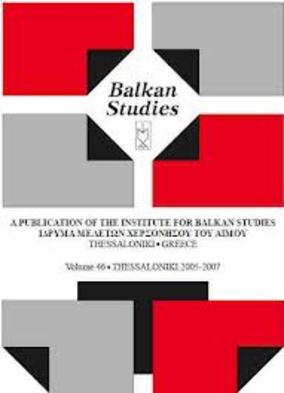The Bulgarians in the Greek textbooks of history of the second half of the 19th century
Part of : Balkan studies : biannual publication of the Institute for Balkan Studies ; Vol.39, No.2, 1998, pages 271-287
Issue:
Pages:
271-287
Section Title:
Articles
Author:
Abstract:
In the present paper the author studies the way the Greek textbooks ofhistory published in the second half of the 19th century dealt with theBulgarians. The conclusions he drew are the following:1) The references to the Bulgarians appeared in the textbooks after theyear 1853 and became more frequent and detailed during the last two decadesof the 19th century. This change was the result of the new history curriculawhich were introduced into the Greek school under the influence of the Greeknational historiography.2) The Bulgarians were not studied by the Greek authors of the textbooksas a people in their own right, but they were directly related to the history ofthe Byzantine Empire.3) The Greek authors, dealing with the conflicts between the ByzantineEmpire and the Bulgarian medieval state, tried to describe the historicalevents as “they really happened” and without bias.4) The Greek textbooks of history published till the end of the 19thcentury, in exempt of some isolated cases, contain no negative stereotypesconcerning the Bulgarians. This fact is very interesting, because a series ofhistorical and geographical essays published in Greece during the same periodof time dealt with the Bulgarians in a negative way because of the Greek-Bulgarian conflict for Macedonia.
Subject:
Subject (LC):
Keywords:
Βούλγαροι το 19ο αιώνα
Notes:
This paper was first presented in a shorter form at the Greek-Bulgarian Symposiumheld in Thessaloniki on 18-19 of February 1994 and organised by the Faculty of Philosophyof Aristotle University of Thessaloniki and “Climent Ohridski” University of Sofia.




